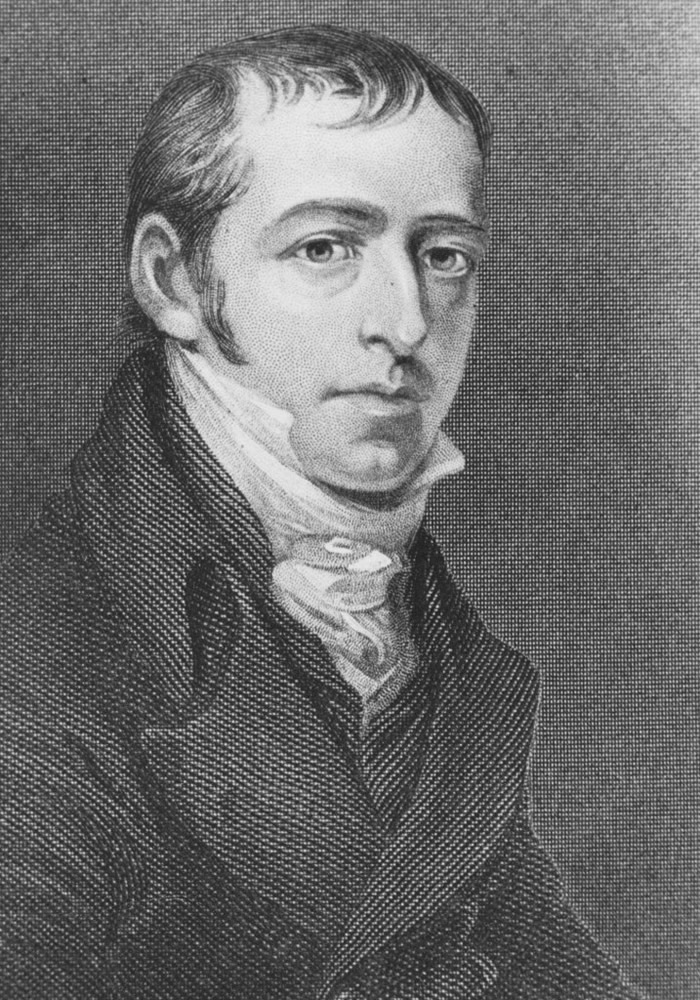History of Hymns: "Stand Up and Bless the Lord," by James Montgomery
By Beth Spaulding

James Montgomery
“Stand Up and Bless the Lord”
by James Montgomery;
The United Methodist Hymnal, No. 662
Stand up and bless the Lord,
ye people of his choice;
stand up and bless the Lord your God
with heart and soul and voice.
James Montgomery (1771-1854) was a Moravian orphan who grew up to be a prominent British journalist. He composed over 400 hymns, some of which were included in his collection, Songs of Zion: Being Imitations of Psalms. Among the most popular of his hymns are “Angels from the Realms of Glory,” “Hail to the Lord’s Anointed,” and “Prayer is the Soul’s Sincere Desire.” On March 15, 1824, Montgomery introduced a hymn written for the Red Hill Wesleyan Sunday School Anniversary in his town of Sheffield, England. It began, “Stand up and bless the Lord, ye children of His choice.” When the hymn was published the next year, Montgomery changed the word “children” to “people.” He based the text on Nehemiah 9:5: “Stand up and bless the Lord your God from everlasting to everlasting. Blessed be your glorious name, which is exalted above all blessing and praise” (NRSV).
As a newspaper editor in Sheffield, England, James Montgomery was known as an outspoken advocate for many humanitarian causes. He wrote against slavery and promoted democracy in government and the end of the exploitation of child chimney sweeps. His ideas for social reform were considered so radical that he was imprisoned twice for his editorials. The first time was in 1795 for printing a poem celebrating the fall of the Bastille; the second, in 1796, was for criticizing a magistrate for forcibly dispersing a political protest in Sheffield. His later account of this episode was published in 1840. Turning the experience to some profit, in 1797 he published a pamphlet of poems written during his captivity, as Prison Amusements. Other causes he championed included hymn singing in the Anglican church services, foreign missions, and the British Bible Society.
Montgomery himself expected that if his name would live at all, it would be in his hymns. The monument at his grave in the Sheffield cemetery reads: “Here lies interred, beloved by all who knew him, the Christian poet, patriot, and philanthropist. Wherever poetry is read, or Christian hymns sung, in the English language, ‘he being dead, yet speaketh’ by the genius, piety and taste embodied in his writings.”
The hymn “Stand Up and Bless the Lord,” having been written originally for children, uses simple and clear language to proclaim the glory of God and the call for God’s people to praise and “stand up” and proclaim their faith. The writer Alfred H. Miles wrote that “His Christian songs are vigorous in thought and feeling, simple and direct in action, broad in Christian charity, and lofty in spiritual aspiration.” No doubt this is part of the reason the hymn has been popular for so long. The text has been set to several different tunes, including ST. THOMAS, CARLISLE, and ST. MICHAEL.
Works consulted included James Montgomery, Christian Poet and Philanthropist; Poets and Poetry of the Nineteenth Century; Memoirs of the Life and Writings of James Montgomery.
About this month’s guest writer:
Beth Spaulding recently received her PhD in liturgical studies from the Boston University School of Theology. This year marks the 20th anniversary of her ordination in the United Church of Christ. She lives in Somerville, Massachusetts.
Contact Us for Help
View staff by program area to ask for additional assistance.
